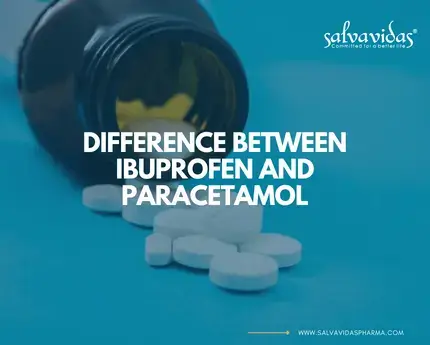
Uses for Acetaminophen
Use this product as indicated and ingest it. Observe every instruction on the product package. If you have any questions, speak with your doctor or pharmacist.
Acetaminophen comes in a wide variety of brands and dosage forms. Read the dosing instructions for that product carefully because the amount of acetaminophen in each medication may differ. Never consume more acetaminophen than is advised. (See also Section on Caution.)
If you want to administer acetaminophen to a child, make sure you use a product made for kids. Use your child’s weight to find the correct dose on the product package. If you don’t know your child’s weight, you can use their age instead.
If the medication is a suspension, fully shake it before taking each dose. Some liquids don’t need to be mixed before use. Observe every instruction on the product package. To precisely measure the liquid medication, use the supplied dose-measuring spoon, dropper, or syringe. Never use a regular spoon.
Chew or allow pills to dissolve on the tongue before swallowing them, with or without water, if the tablet dissolves fast. If the tablets are chewable, chew them completely before swallowing.
Extended-release pills shouldn’t be chewed or crushed. This could result in a sudden, total leak of the medication, increasing the likelihood of adverse effects. Completely swallow the tablets.
For effervescent pills, combine the recommended amount of water with the dose before taking them.
As soon as the first signs of discomfort arise, it is advised to take medications. If you wait until the symptoms are severe before taking the medication, it might not work as well.
Do not take this fever-relieving medication for longer than three days if your doctor has not prescribed it. Use this medication only as directed by your doctor, and never for more than 10 days at a time to treat adult pain (5 days in children). If the child has a sore throat, get medical attention as soon as possible, especially if they are also feeling feverish, headachey, queasy, or vomiting.
If your disease persists, gets worse, or if you start experiencing any new symptoms, let your doctor know.
If you suspect you might have a major medical issue, get immediate medical attention.
Side Effects of Acetaminophen
Also, see the Warning section.
Typically, this medication has no negative effects. Immediately get in touch with your doctor or pharmacist if you experience any odd effects.
Remember that if your doctor has prescribed this medication for you, it means that he or she has decided that the risk of side effects is less than the benefit to you. There are no known negative effects, according to several users of this drug.
Will this drug occasionally result in a very severe allergic reaction? However, if you develop any serious adverse reaction symptoms, such as a rash, itching, or swelling (especially of the face, tongue, or throat), extreme dizziness, or trouble breathing, seek medical attention right once.
medical attention right away.
Overdose
- Notes
NSAIDs like aspirin, ibuprofen, and naproxen may induce stomach and intestinal ulcers, whereas acetaminophen does not. But unlike NSAIDs, acetaminophen does not lessen swelling (inflammation). For further information and to find out which drug could be best for you, speak with your doctor. - Untaken Dose
If you use this medication on a regular basis and forget to take a dose, do so right away. Skip the missed dose if the following dose is soon due. At the scheduled time, take your next dose. To catch up, do not increase the dose. - Storage
Items should be kept at room temperature and away from light and moisture. Keep out of the bathroom. Keep children and pets away from any drugs.
Avoid dumping medications down the toilet or pouring them down drains unless specifically instructed to do so. Dispose of the product properly when it is no longer required or has expired. Consult your pharmacist or the waste management company in your area.
Interactions
Also, see the Warning section.
Drug interactions may change how your medications work or increase the risk of serious adverse effects. This document does not list all potential drug interactions. To your doctor and pharmacist, keep a list of all the medications you use, including prescription, over-the-counter, and herbal supplements. Without your doctor’s approval, never start taking a drug, stop using a medication, or change the dosage.
Ketoconazole and levoketoconazole are a few of the products that may interact with this medication.
This medicine may affect some laboratory tests, leading to potentially inaccurate test findings. Make sure the lab personnel and all of your doctors are informed that you take this medication.
Precautions
Also, see the Warning section.
If you have any allergies, including to acetaminophen or any other medications, let your doctor or pharmacist know before taking any acetaminophen. The inactive components in this product could result in allergic responses or other issues. For more information, consult your pharmacist.
Inform your doctor or pharmacist about your medical history before using this medicine, particularly if you have liver disease or regularly consume or abuse alcohol.
Sugar or aspartame may be present in liquid formulations, chewable pills, dissolving/effervescent tablets, and powders. You should exercise caution if you have diabetes, phenylketonuria (PKU), or any other condition that requires you to restrict or avoid these substances from your diet. If you have any of these conditions, consult your doctor or pharmacist for advice on how to use these products safely.
If you’re expecting it, tell your doctor before taking this medication.
Breast milk is able to absorb acetaminophen. Before breastfeeding, speak with your doctor.
Speak to your doctor or pharmacist.




0